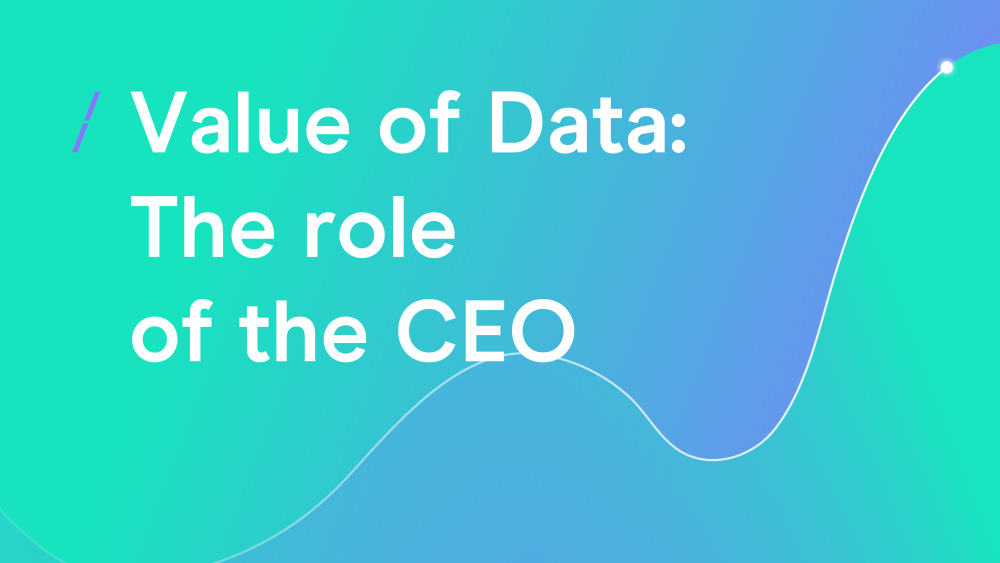Value of Data: The role of the CEO
18 May 2019

Given the high-profile difficulties of the year to date, you may think that now would be a good time to keep your data hidden from the world. So soon after the fallout of Facebook and Cambridge Analytica, what would be the good in a public debate about its value to business and their customers?
I believe the opposite. In my view, there's never been a better time to discuss and determine data's value.
In the 1980s, tenacious advertising experts succeeded in applying tangible value to brands. Today, there are at least three annual studies that rank brands according to their financial muscle.
Data has no such listing. It remains an intangible asset on the balance sheet. For something that's been labelled "the new oil" for public and private organisations the world over (I prefer to call it "the new glue" that binds together disparate parts of an organisation) it's crazy that we still haven't found a way of ascribing value to it. I'm not even sure we've looked.
The problem with the current financial presentation of data is that there's no way of evaluating all the good things it can be used for; delivering better customer experiences and relationships, by first building trust, for example. Crucially, it remains a mystery to most boardroom members. How many CEOs, even CFOs, could instantly tell us how much their organisation's data is worth?
Too many establishments still consider data a risk rather than an asset. Now, I'm not denying for a moment that episodes such as Cambridge Analytica and breaches like TalkTalk are damaging to data's reputation. But the more data owners talk about their asset in hushed tones, the more difficult it will be to persuade customers about its benefits.
There has been a lot of negative commentary and misreporting around the effects of the GDPR, and no doubt many C-suite members have responded to those horror stories by focussing solely on risk and ignoring opportunity. The brand evaluation evangelists were smart in persuading boardrooms of the reputational risks around not valuing brand. It's our job to prove to the C-Suite that the same must be true of valuing data.
Those trailblazers of the 80s campaigned for accountants to place brand on the balance sheet. Today, we're blessed with a far greater understanding of what data is and how to use it. We must build on that to prove the strategic case for valuing data while remembering the ultimate goal is to create confidence among our customers. After all, it's their data - not ours.
GDPR is forcing organisations to create new and market-leading privacy policies. This is critical, because an informed customer will be more likely to buy into and respect transparency. As people are statistically likelier to spend more money with brands they trust, the value of data can be proven through increased revenues and a bigger number on the balance sheet. The organisation will see the benefit of further investing in its data, and so a virtuous circle is drawn.
The journey starts with a debate about a standard methodology for evaluation; continues with lobbying the accounting community to recognise data; and ends with presenting the figures in a clear and meaningful way in the boardroom so the top brass can understand just what a valuable asset they own.
CEOs must be the standard bearer for their organisation, proving to investors and shareholders they understand the category, acknowledging the real value of data to their business and displaying a willingness to invest in it to drive even greater value and build consumer trust.
Data's time has come. Despite recent mis-steps, that's something I firmly believe, and I give my whole-hearted support to DMA Scotland's value of data campaign. With data on the balance sheet, UK plc will be viewed as a superior economy that has wisely invested in its data. All of us now need to be involved in creating the favourable conditions that will give data its rightful place in the sun.
Mark Runacus, Chair of the DMA (UK) Board
To read an introduction to the Value of Data project, click here.
Please login to comment.
Comments